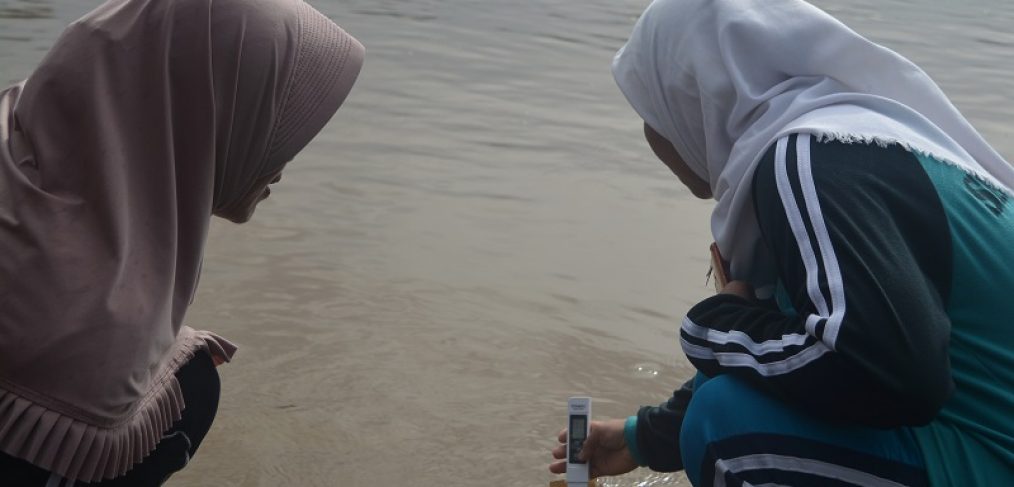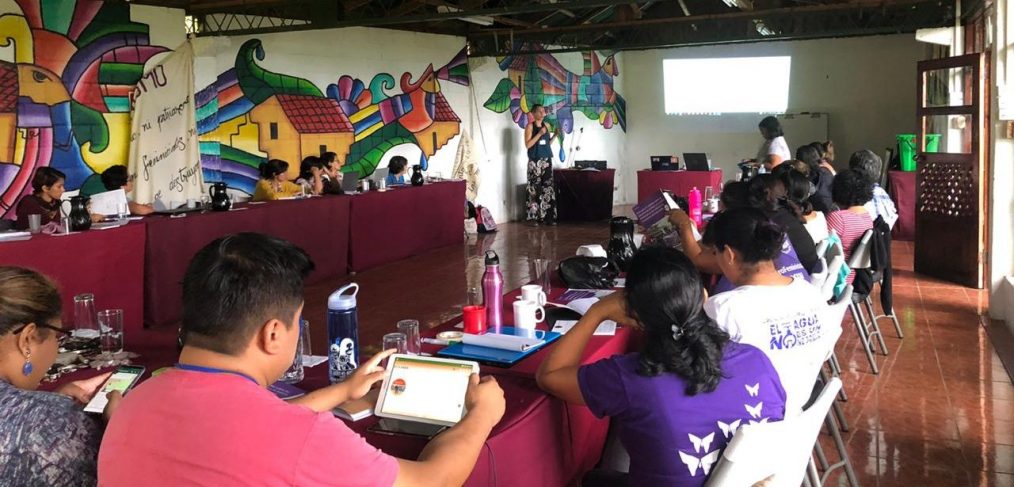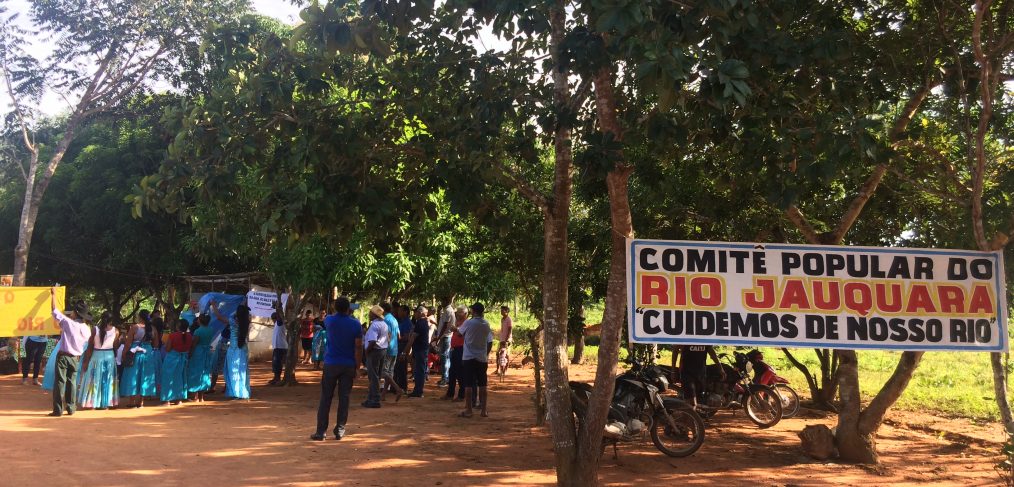Women’s rights, water quality and oil palm plantations. They may seem like unlikely topics to bring together, but for women in the riverside villages of Semanga and Simpang Tiga Sembelangaan in West Kalimantan the relevance is clear. Healthy watersheds and access to local water supplies are vitally important to women and girls in the area, as they are typically in charge of managing household water supplies, sanitation and health. When water becomes scarce or unsafe for drinking, cooking or washing, women and girls suffer first and foremost. They may be forced to dedicate more of their limited time, energy and economic resources to obtaining clean water for themselves and their families, as well as dealing with the health impacts of exposure to contaminated water.
Women’s right to a healthy and safe environment has as much to do with the flow of money as it does with the flow of water. After a flood of global investment into their communities, women often see clean water turn toxic, or their rivers run dry. Publicly-supported International Financial Institutions (IFIs) are a key player in global financial flows, investing hundreds of billions each year in projects purportedly aimed at fostering economic growth and reducing poverty. All too often, such projects undermine the rights of women.
The world’s largest freshwater wetland connects the lives of no less than 160 million people in five countries. The wetland, known as the La Plata Basin, feeds communities and ecosystems along a meandering path that reaches from the Andes to the Río de la Plata.
As part of the Wetlands without Borders programme, Both ENDS is supporting partners in Argentina, Bolivia, Brazil, Paraguay and Uruguay as they work together to build a powerful transnational people’s movement to match the movement of the water. The key objective of the programme is to ensure that the people most affected by the wetland ecosystem are informed and engaged in protecting it. The programme aims to promote more inclusive governance and sustainable use of natural resources throughout the region.



